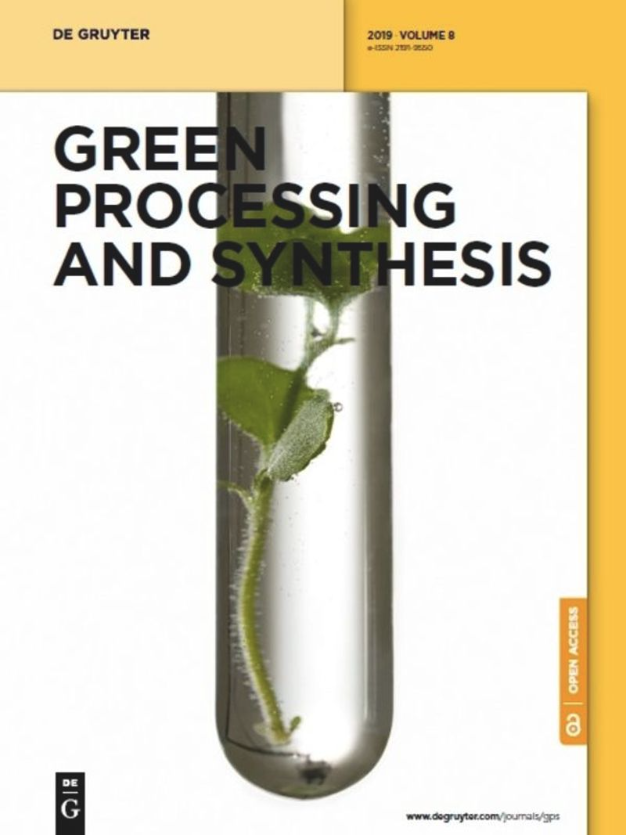Rapid and efficient microwave-assisted extraction of Caesalpinia sappan Linn. heartwood and subsequent synthesis of gold nanoparticles
IF 3
4区 工程技术
Q2 CHEMISTRY, MULTIDISCIPLINARY
引用次数: 3
Abstract
Abstract Since microwave (MW)-assisted synthesis of gold nanoparticles (AuNPs) using Caesalpinia sappan (CS) extract as both a reducing and stabilizing agent is currently unavailable, a MW-based synthesis protocol was investigated and presented for the first time in this work. In addition, to rapidly prepare the reactant for this purpose, the MW-assisted extraction of CS heartwood was studied. From the optimization experiments, it was found that the extraction using the MW irradiation at 300 W for 3 min produced the extract with high and reproducible brazilin content which could be readily used for the synthesis of AuNPs. Under the optimal synthesis conditions, roughly spherical CS-AuNPs with an average diameter size of 49.6 nm and acceptable 28-day stability were obtained within only 1 min. The resulting CS-AuNPs were capable of selective binding to Fe2+, Fe3+, and Al3+, leading to particle aggregation as well as noticeable change of color and shift of UV-Vis absorption maxima. From these results, CS-AuNPs could be fabricated via this fast, green, and efficient route. Furthermore, their potential application for colorimetric sensing of certain metal ions was preliminarily explored and proposed in this work.微波辅助快速高效提取山参的研究。心材和随后合成的金纳米颗粒
摘要:由于目前尚没有微波(MW)辅助合成金纳米粒子(AuNPs)的方法,因此本文首次研究了一种基于微波的合成方案。此外,为了快速制备此目的的反应物,研究了微波辅助提取CS心材的方法。优化实验结果表明,在300 W、3 min的微波辐照条件下,提取得到的巴西酸含量高、重现性好,可用于合成AuNPs。在最佳合成条件下,仅需1 min即可获得平均直径为49.6 nm的大致球形的CS-AuNPs,并具有良好的28天稳定性。得到的CS-AuNPs能够选择性地与Fe2+、Fe3+和Al3+结合,导致颗粒聚集,颜色发生明显变化,UV-Vis吸收最大值发生偏移。根据这些结果,cs - aunp可以通过这种快速、绿色和高效的途径制备。此外,本文还初步探讨了它们在某些金属离子比色传感中的潜在应用。
本文章由计算机程序翻译,如有差异,请以英文原文为准。
求助全文
约1分钟内获得全文
求助全文
来源期刊

Green Processing and Synthesis
CHEMISTRY, MULTIDISCIPLINARY-ENGINEERING, CHEMICAL
CiteScore
6.70
自引率
9.30%
发文量
78
审稿时长
7 weeks
期刊介绍:
Green Processing and Synthesis is a bimonthly, peer-reviewed journal that provides up-to-date research both on fundamental as well as applied aspects of innovative green process development and chemical synthesis, giving an appropriate share to industrial views. The contributions are cutting edge, high-impact, authoritative, and provide both pros and cons of potential technologies. Green Processing and Synthesis provides a platform for scientists and engineers, especially chemists and chemical engineers, but is also open for interdisciplinary research from other areas such as physics, materials science, or catalysis.
 求助内容:
求助内容: 应助结果提醒方式:
应助结果提醒方式:


